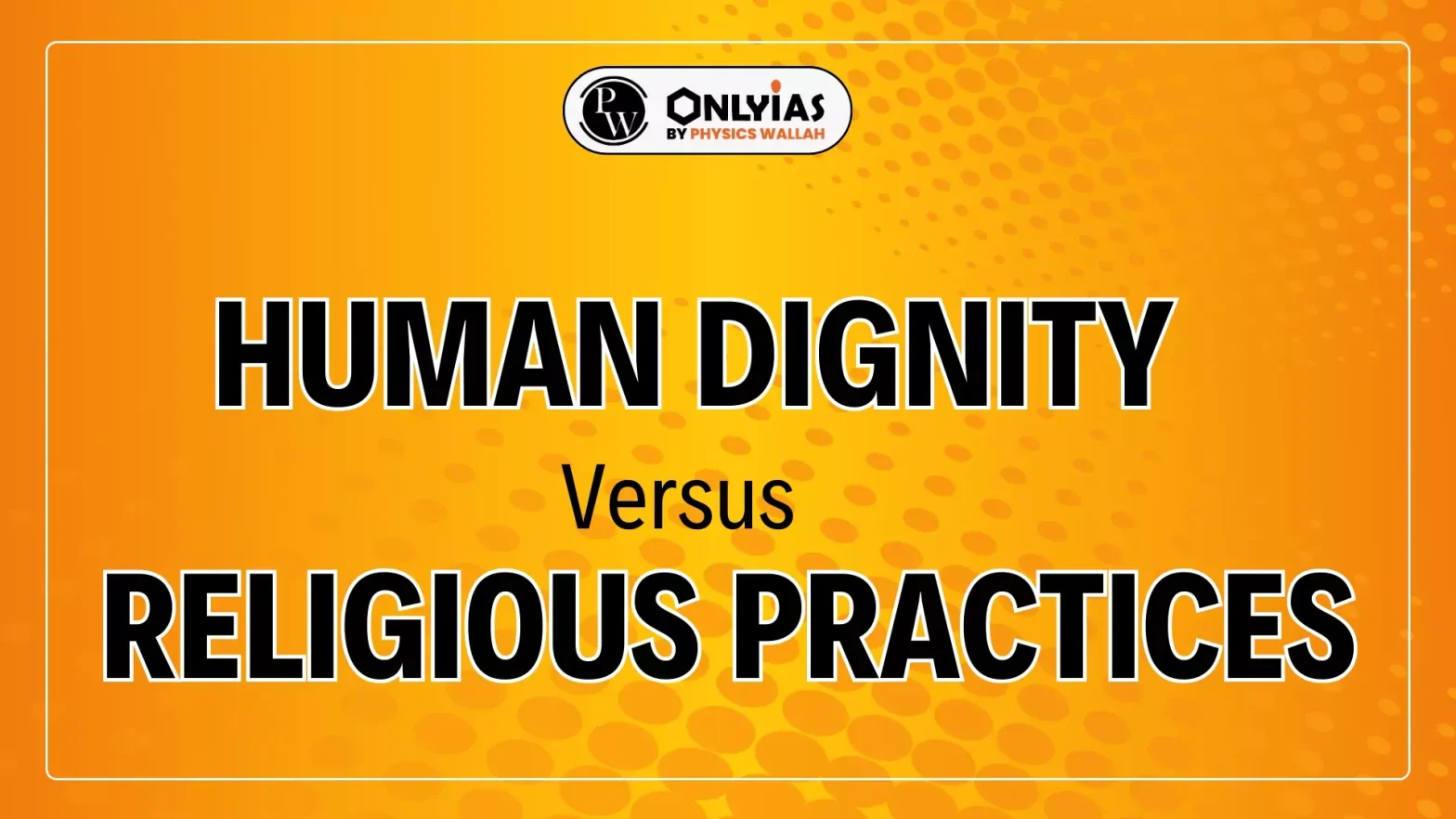On May 17, the Madurai Bench of the Madras High Court allowed the resumption of “annadhanam” (offering free food) and “angapradakshanam” (circumambulation) at the final resting place of Nerur Sathguru Sadasiva Brahmendral on the eve of his Jeeva Samathi day.
| Relevancy for Prelims: Annadhanam (offering free food), Angapradakshanam (circumambulation), Articles 14, 19(1)(a), 19(1)(d), 21 and 25(1) of the Constitution, etc.
Relevancy for Mains: Tension between religious freedom, human dignity, and the state’s role in reforming traditional practices in India, etc. |
Human Dignity Versus Religious Practices
The practice of doing ‘angapradakshanam‘ by rolling on the plantain leaves left behind by devotees after eating food from them, in the belief that it would offer spiritual benefit, had been in vogue for over 100 years.
Enroll now for UPSC Online Classes
- However, it was halted by a Division Bench order in a public interest litigation (PIL) petition in 2015.
- Nine years later, Justice G.R. Swaminathan reinstated the practice by invoking Article 25(1) of the Constitution that guarantees the right to freely profess, practise, and propagate religion.
- The judge linked the belief of the devotees, who claim to derive spiritual benefit from such practice, to the right to privacy, a fundamental right under the Constitution.
- He argued that if the right to privacy includes “gender and sexual orientation”, it also includes “spiritual orientation”.
- “It should not affect the rights and freedoms belonging to others.
- So as long as this Rubicon is not crossed, it is not open to the State or the courts to impinge on one’s action,” he said.
- The judge overlooked the people’s movement that culminated in the judicial decisions that recognised sexual orientation, which cannot be equated with a spiritual orientation, especially as angapradakshanam on the plantain leaves left behind by devotees is customary and religious rather than spiritual.
- He cited the Mahabharata to support his decision, arguing that spiritual benefits are conferred by rolling on leftover food.
- He sums it up by holding that the customary practice is protected as a fundamental right under Articles 14, 19(1)(a), 19(1)(d), 21 and 25(1) of the Constitution.
- Justice Swaminathan overruled the Division Bench’s order on the ground that the devotees and the trustees of the Adhistanam, who were the necessary parties in the PIL petition, were neither included as parties nor heard and held the order to be a fallacy as it suffered from an egregious breach of the principles of natural justice.
- The Division Bench order noted that all devotees irrespective of their castes indulged in the practice of rolling on the leftover plantain leaves.
- It concluded that such religious and customary practices affect human dignity and violate the rights of equality and life under Articles 14 and 21 of the Constitution.
- Despite the voluntary acts of the devotees, the court ordered the practice to be stopped immediately in 2015.
- The Division Bench relied on a case from Karnataka that is pending in the Supreme Court, where a similar practice was performed at the Kukke Subramanya temple in Dakshina Kannada district.
- The Supreme Court stayed the practice in December 2014 and directed the respondents therein not to allow anyone to roll on leftover plantain leaves.
- Justice Swaminathan negates the Supreme Court order noting that the Karnataka case involved only Brahmins’ leftovers that persons of other communities rolled over, while in the present case, all devotees participated irrespective of their community.
- He observed that “in fact, the custom on hand points to communal amity and social integration”.
- The reasoning is due to the erroneous understanding of the facts in the Supreme Court case, which arose on an appeal from the Division Bench of the Karnataka High Court.
Check Out UPSC NCERT Textbooks From PW Store
Conclusion
Justice Swaminathan’s reinstatement of angapradakshanam underscores the complex interplay between religious freedom and human dignity, challenging prior judicial decisions on customary practices.
![]() 25 Jun 2024
25 Jun 2024

